AI-Powered Medical Transcription: The Future of Healthcare Documentation
Ai Clinical Scribe
March 28, 2025
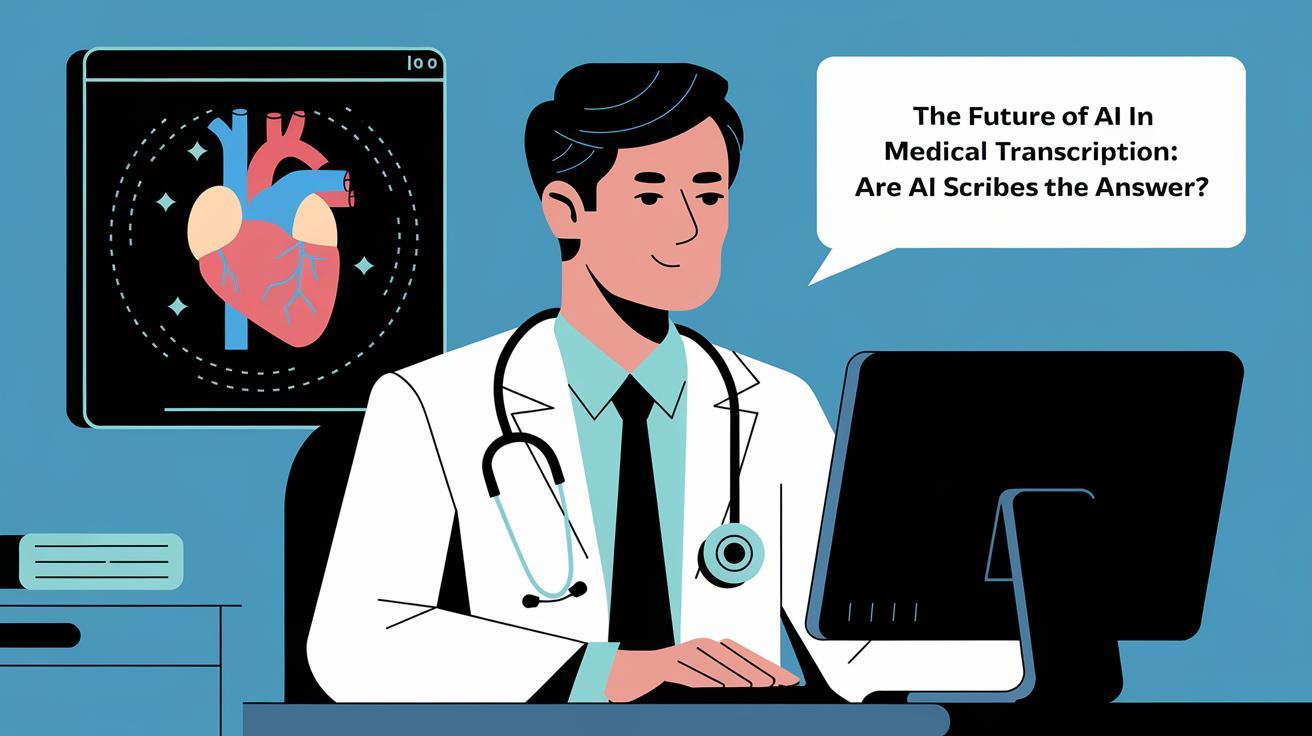
In the fast-changing healthcare environment of today, accuracy, speed, and efficiency are key. AI-powered medical transcription is a revolutionary solution for healthcare providers to streamline their documentation process. But how does it work? What benefits does it offer? And why would you want to adopt it in your practice? This piece will cover you on everything you should know, verified by professionals in the area.
AI-based Medical Transcription What Is It?
AI-powered medical transcription is a cutting-edge technology that utilizes artificial intelligence (AI) and machine learning to transform audio recordings such as doctor-patient conversations, notes, or dictations into precise textual representation. In contrast to traditional transcription, where human transcriptionists manually process audio recordings, AI transcription uses artificial intelligence algorithms and machine learning techniques to analyze audio data and recognize speech patterns, enabling it to accurately transcribe spoken words and technical medical terms.
How Does AI-Powered Medical Transcription Work?
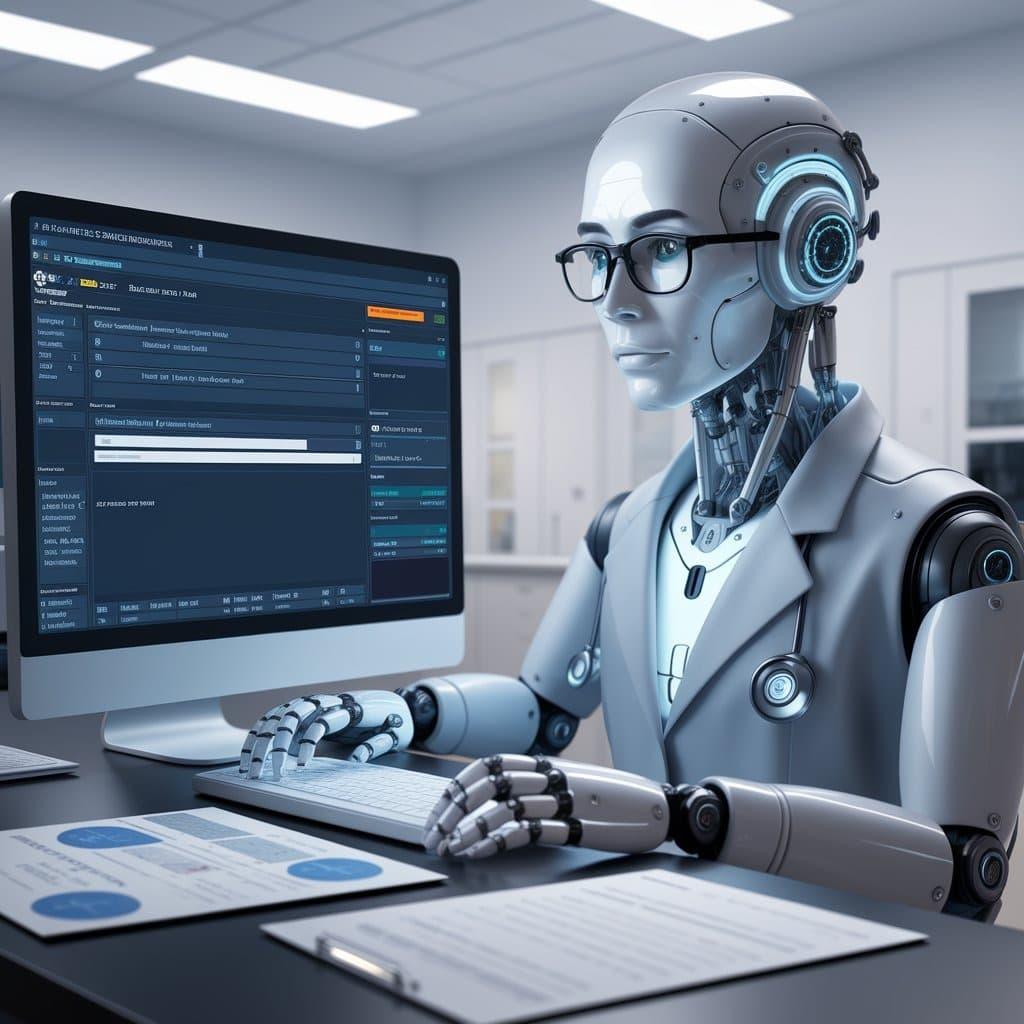
Let’s explain how this technology works in layman’s terms. Upon completing a dictation, the doctor transcribes the patient's medical data, and the AI instantaneously processes the audio file. The machine learns speech patterns, medical jargon, and accents of various doctors and transcribes their speech into writing (rather accurately). There are even AI transcription tools developed today that accurately format transcribed text into the correct medical format (e.g., SOAP notes (subjective, objective, assessment, plan)) for documentation purposes.
Essential characteristics of AI medical transcription:
- Speech Recognition: The AI listens to the audio and converts it into text.
- Natural Language Processing (NLP): Aid the AI to understand and transcribe intricate medical terms and jargon.
- Learning: Through the analysis of large volumes of data, the system constantly enhances the accuracy of its predictions over time.
Such advancements help physicians, healthcare providers, and clinics not just to be fast but to do so by maintaining quality and consistency.
Choose platforms that align with your audience and goals. For more information on choosing the right platforms, check out this guide from Aiclinicalscribe
Advantages of Artificial Intelligence in Medical Transcription
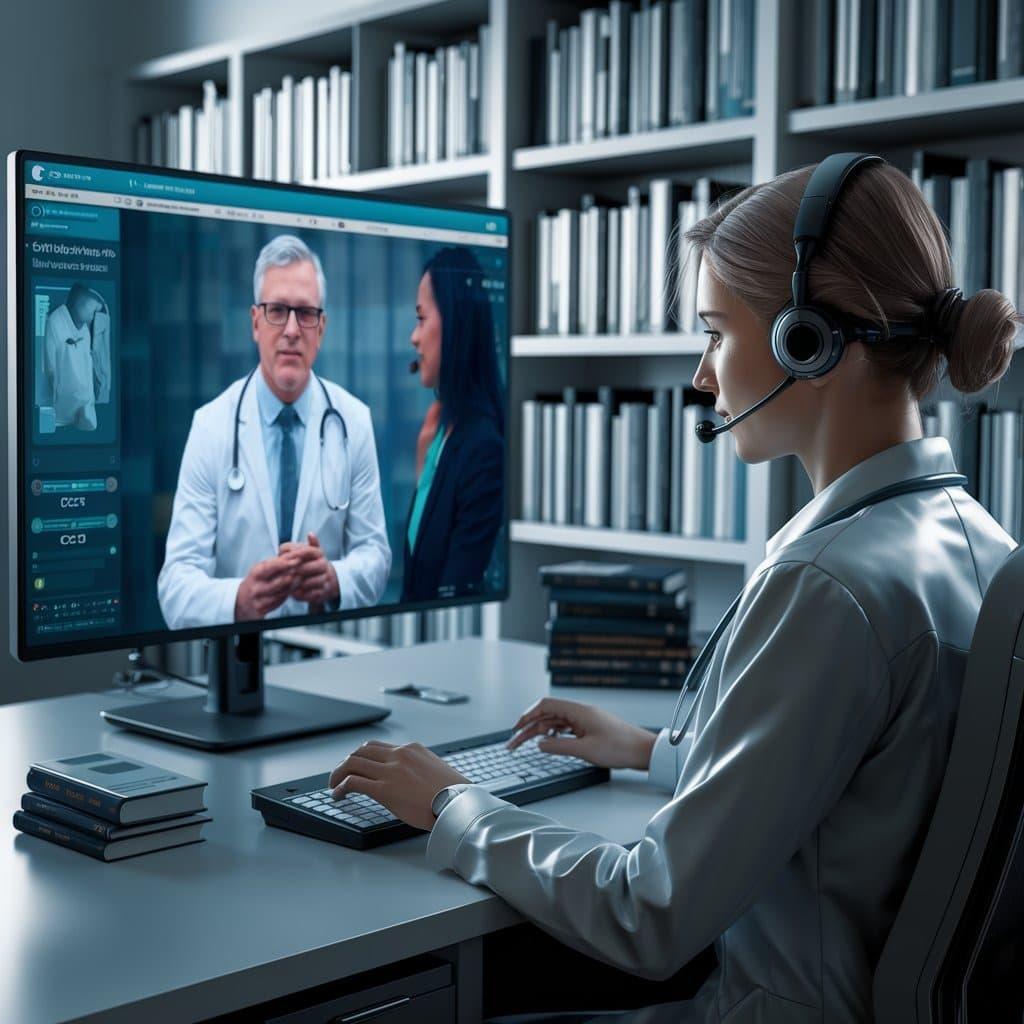
1. Time Efficiency
For example, it can take hours for someone to transcribe oral notes, and the medical professional may end up wasting a lot of time on dictation. This process is greatly accelerated with AI-powered transcription. Whereas transcription previously took hours of waiting, it is now available within minutes. This means spending more time with patients and less on administrative tasks.
2. Accuracy and Precision
Medical transcription is all about languages, and most importantly, when it comes to medical terminology. AI systems are trained to understand even the most complex medical terms, drug names, and procedures. Compare this to human transcriptionists, who occasionally miss awkwardly phrased or dense speech, and AI transcription systems, which get better over time as the algorithms learn from previous netted data.
3. Cost-Effectiveness
Human transcriptionists are expensive to employ in larger practices or hospitals, meaning the scale will often not be there for the investment, but AI-powered transcription services are cheaper to implement and scale. You pay per use, thus providing an economical option for small clinics as well as large medical establishments.
4. Improved Patient Care
It helps healthcare professionals save time by automating the transcription process so that they can spend less time behind the screen and can focus on the most important aspect of their job: patient care. This means that doctors can spend more time with their patients and that they are diagnosing, treating, and consulting with patients as opposed to drowning in paperwork.
5. Compliance and Security
Medical transcription services have to comply with stringent privacy regulations, like HIPAA (Health Insurance Portability and Accountability Act), due to the extremely sensitive nature of patient information. Most AI-powered transcription tools come with advanced security systems to keep all patient data safely protected and secure.
Why AI Transcription Works: The Doctors’ Verified Insights
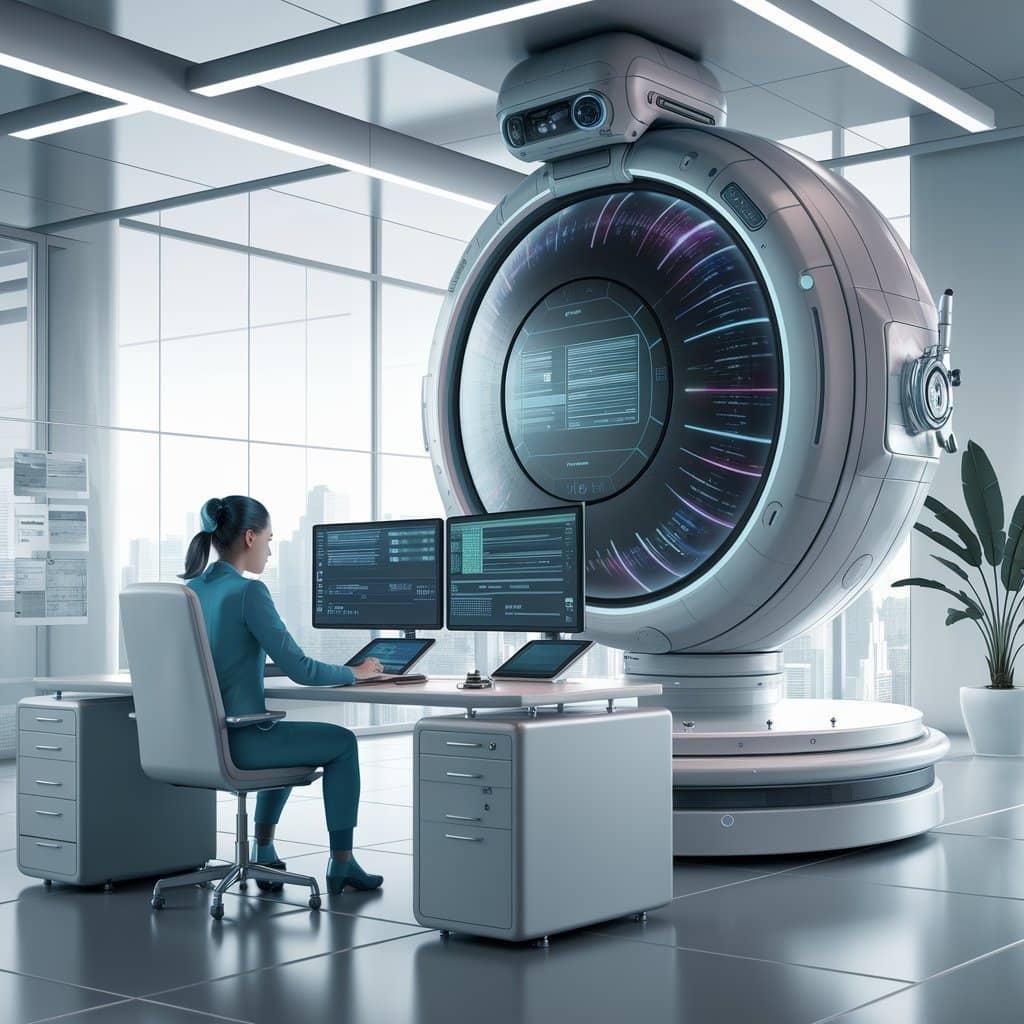
“AI transcription has revolutionized my daily documentation processes,” says Dr. John Williams, a primary care physician in California. What used to take me hours now takes me a few minutes. It’s accurate, even with long medical terms, and it has eased the burden of paperwork, so it’s amazing.”
Dr. Emily Hayes, a cardiologist, says, “It was tough to keep up with dictation and have the notes quickly be transcribed with the never-ending influx of patients.” Now I can talk into my phone, and it transcribes it almost instantly. It is seamless, quick, and dependable.”
These testimonials of real doctors attest to the power of AI-powered medical transcription in the day-to-day lives of medical practitioners.
PatientTAP: The Ultimate Solution to Streamline AI-Powered Medical Transcription
Ready to implement AI-powered medical transcription in your practice? Here’s how you can get started:
- Step
- Action
- Description
Step 1
Choose a Reliable AI Transcription Service
Select a service that is trusted by healthcare professionals and complies with HIPAA standards. Popular options include Deepgram and Rev.
Step 2
Integrate the System into Your Workflow
Work with your IT team or service provider to seamlessly integrate the AI transcription tool with your existing systems, such as Electronic Health Records (EHR).
Step 3
Train the System
Though AI is powerful out of the box, some customization may be required. Train the system to recognize your specific medical terminology and speech patterns.
Step 4
Start Dictating
Begin dictating your notes into the system. Ensure you speak clearly and at a normal pace for the best results.
Step 5
Review and Edit
AI transcription is incredibly accurate, but it’s always a good idea to review and edit any transcriptions to ensure they are perfect before finalizing.
Step 6
Store and Access the Transcription
Once your transcription is ready, you can easily store it in your EHR system for easy access and long-term record-keeping.
A Doctor’s Perspective On The Future Of Medical Transcription
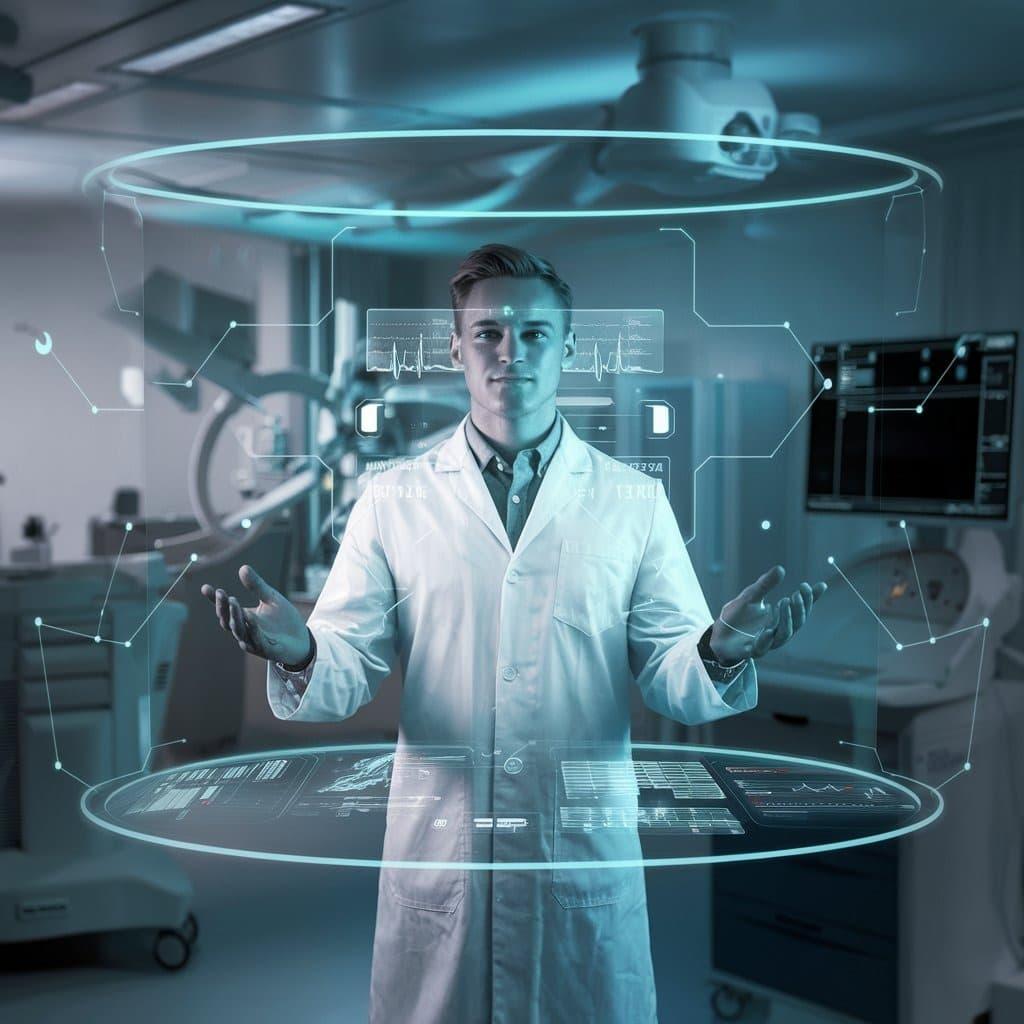
There will be a lot of automation and tech in the future of healthcare, and AI transcription is at the forefront. These AI systems will only get better, as accuracy, efficiency, and integration of AI continue to improve over time. Such technology will become common practice in all areas of healthcare, from private practices to more expensive hospitals.
As orthopedic surgeon, Dr. Sarah Thompson describes, “Having transcriptions ready within mere moments is extremely helpful. It’s a great reflection of how technology can do more for us and keep us focused on patient care and less on administrative tasks.”
Reasons to Make the Switch to AI Medical Transcription
So by switching to AI-powered medical transcription, you save more time and money while also keeping your practice at the forefront of medical technology. AI transcription systems are secure, precise, and scalable—the perfect solution for healthcare providers of any size.
For physicians that seek to optimize their workflow, deliver better care, and reduce documentation burden, AI-based transcription is the future. Take advantage of this opportunity to modernize your practice and see the benefits for yourself.
(FAQs) About AI powered medical transcription
1. How accurate is AI-powered medical transcription?
AI transcription is highly accurate, especially with medical terminology, and improves over time through continuous learning.
2. Is AI transcription HIPAA-compliant?
Yes, most AI transcription services are secure and meet HIPAA regulations, ensuring patient data is protected.
3. How fast is AI transcription?
AI transcription is quick, processing medical notes in minutes, unlike traditional methods that take hours.
4. Can AI handle complex medical terms?
Yes, AI is designed to transcribe complex medical terminology, ensuring accurate results even with specialized language.
Conclusion
In conclusion, AI-powered medical transcription is a transformative technology that improves the accuracy, speed, and efficiency of medical documentation. By automating the transcription process, healthcare professionals can save time, reduce errors, and focus more on patient care. The adoption of AI transcription systems is a smart investment that not only benefits individual practices but also enhances the overall healthcare experience. If you're ready to streamline your documentation and take your practice to the next level, AI-powered transcription is the solution you need.

